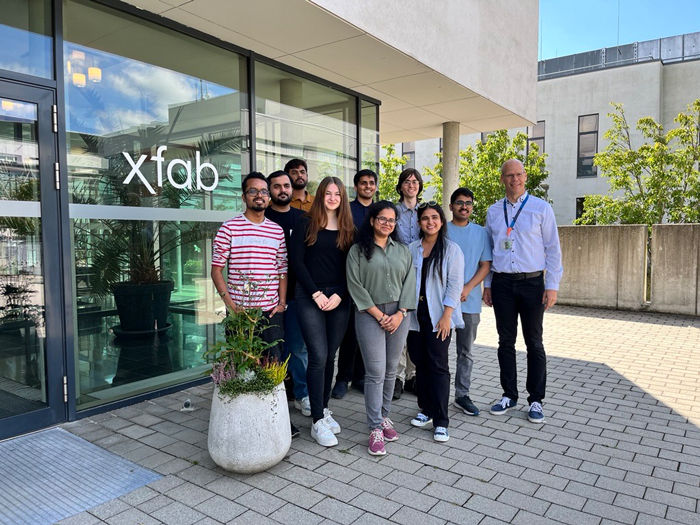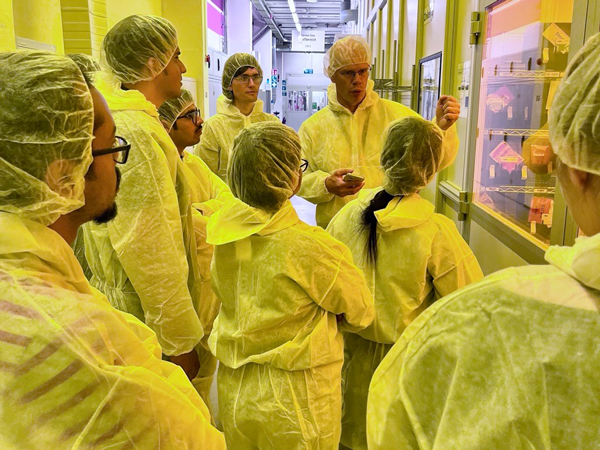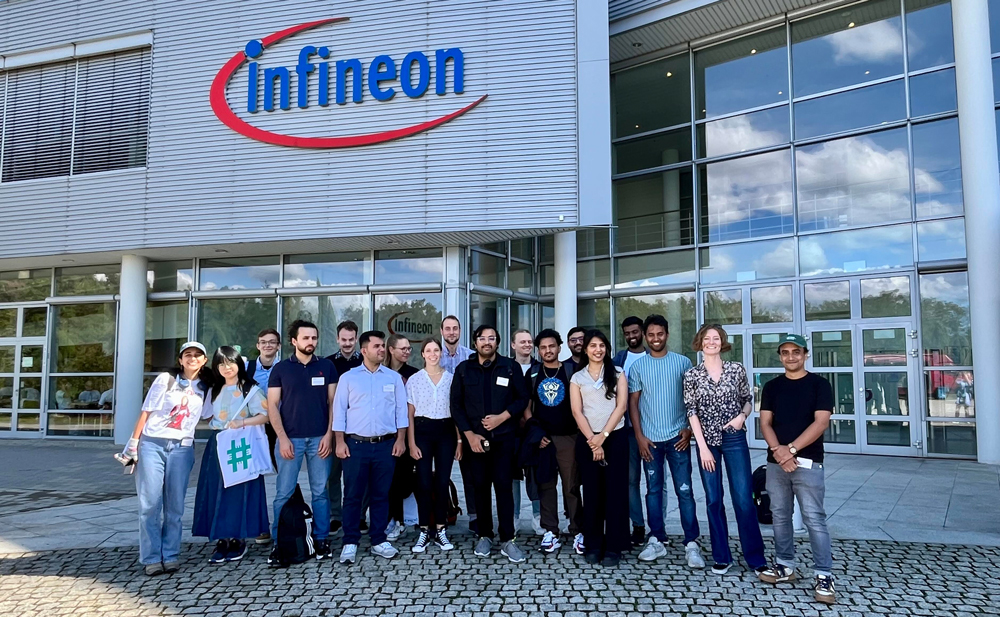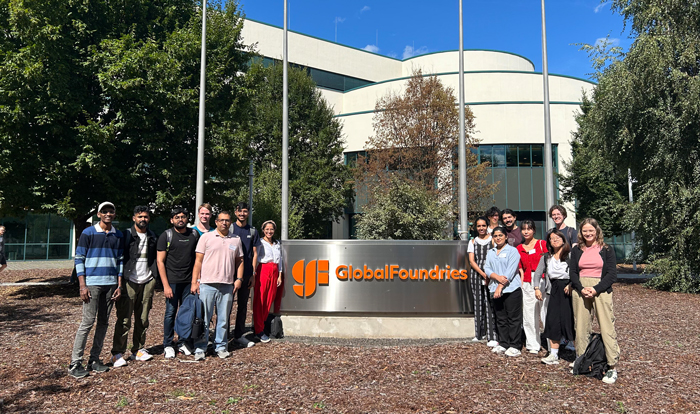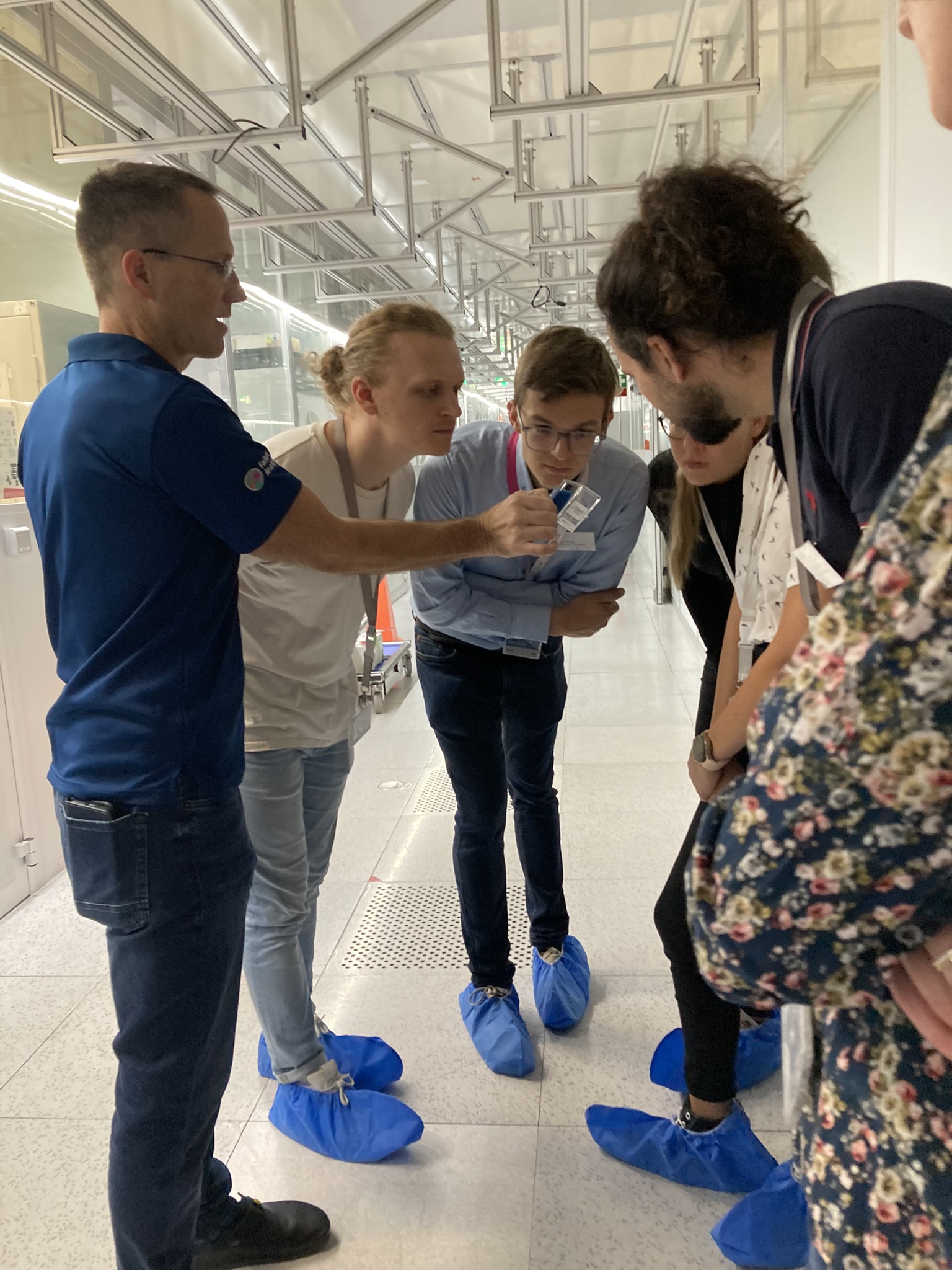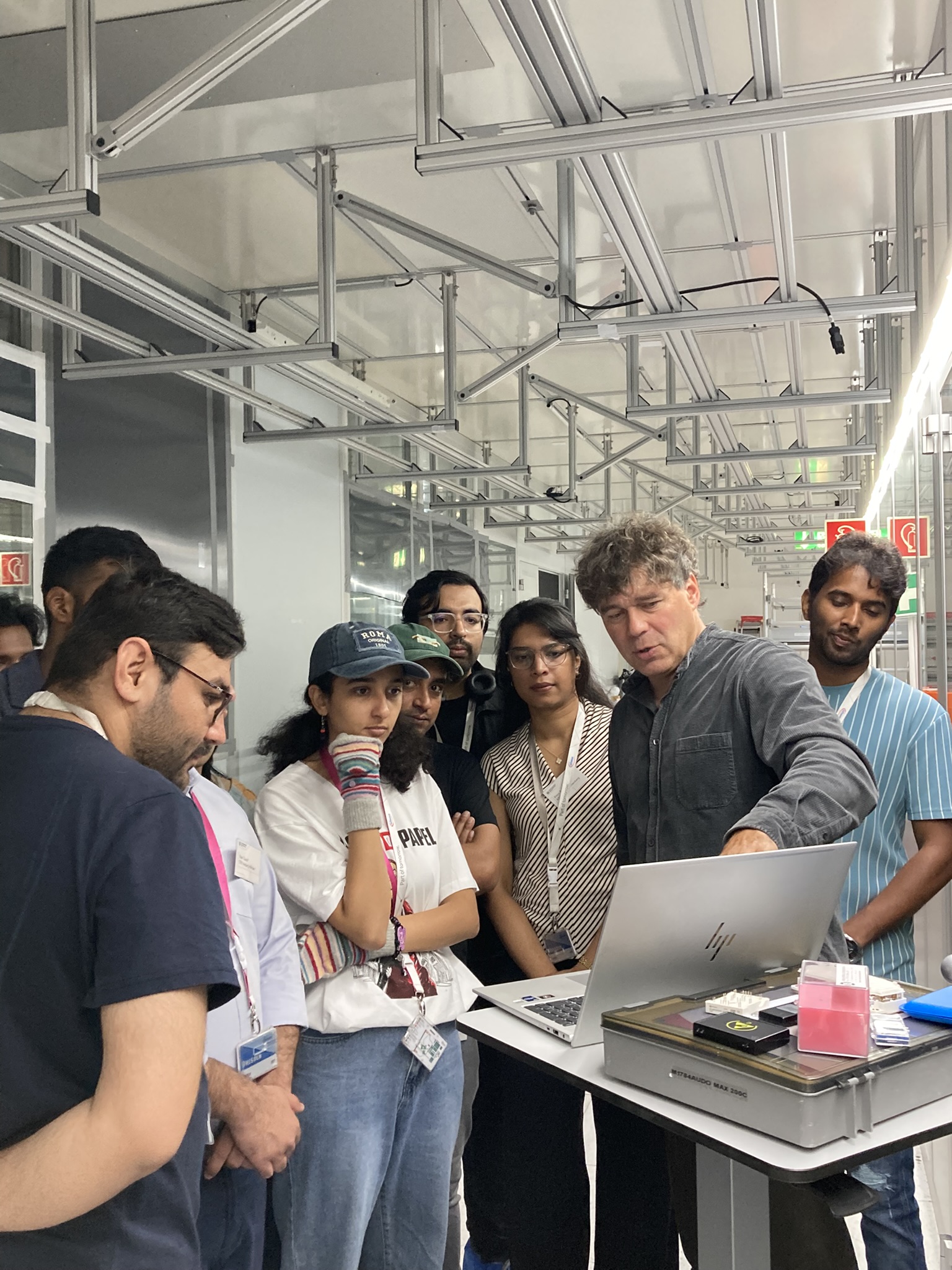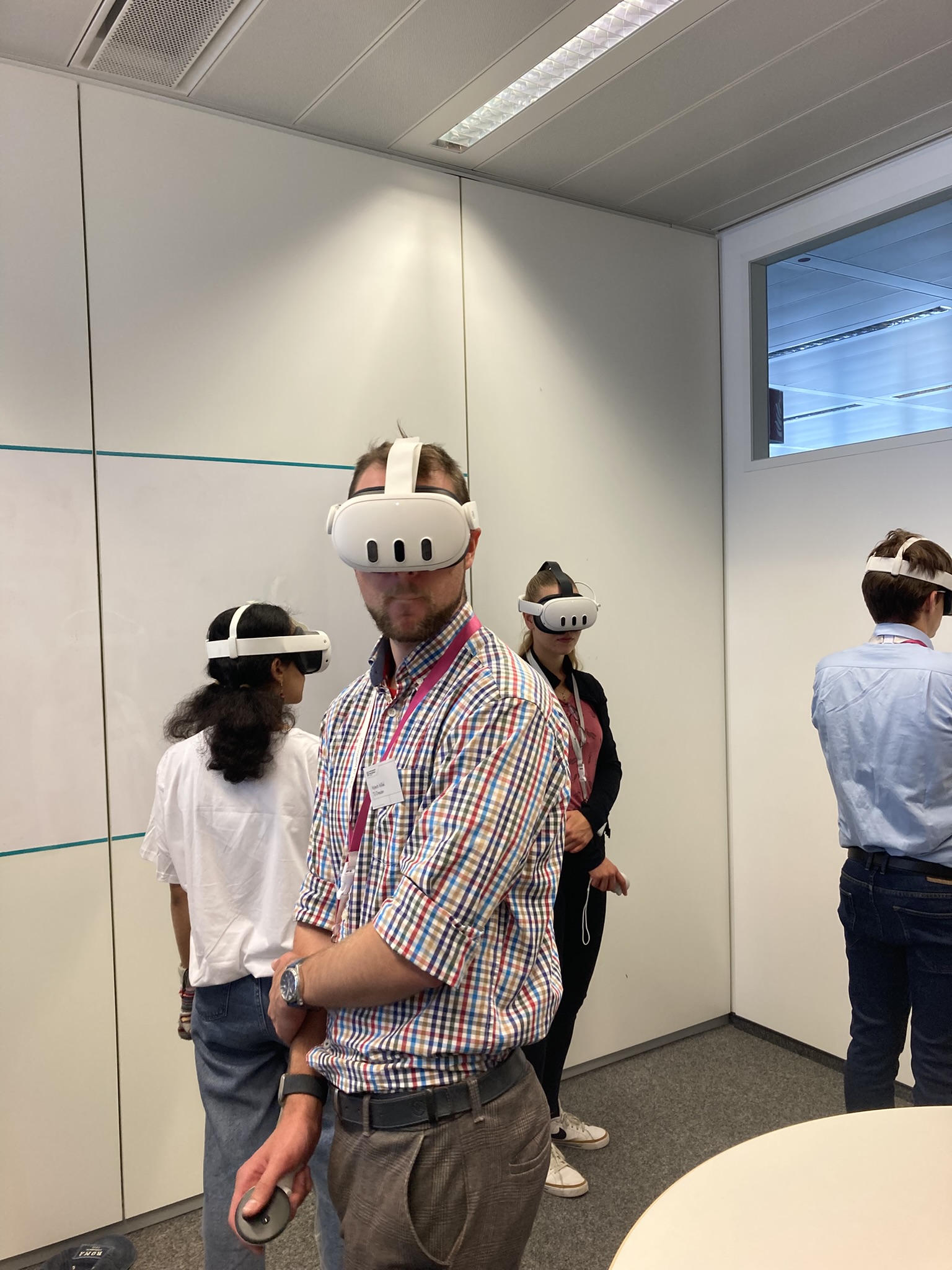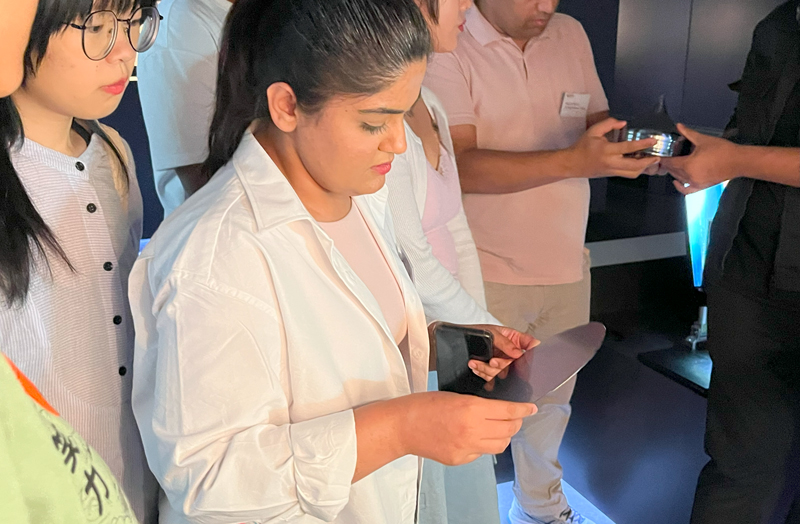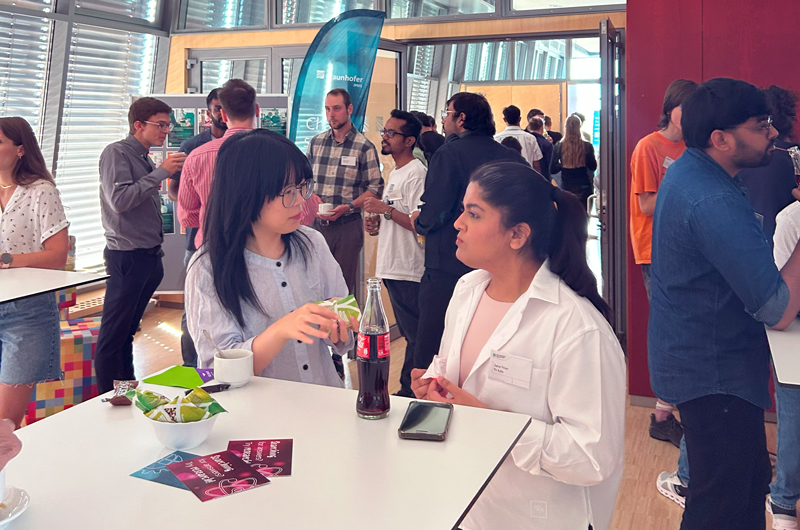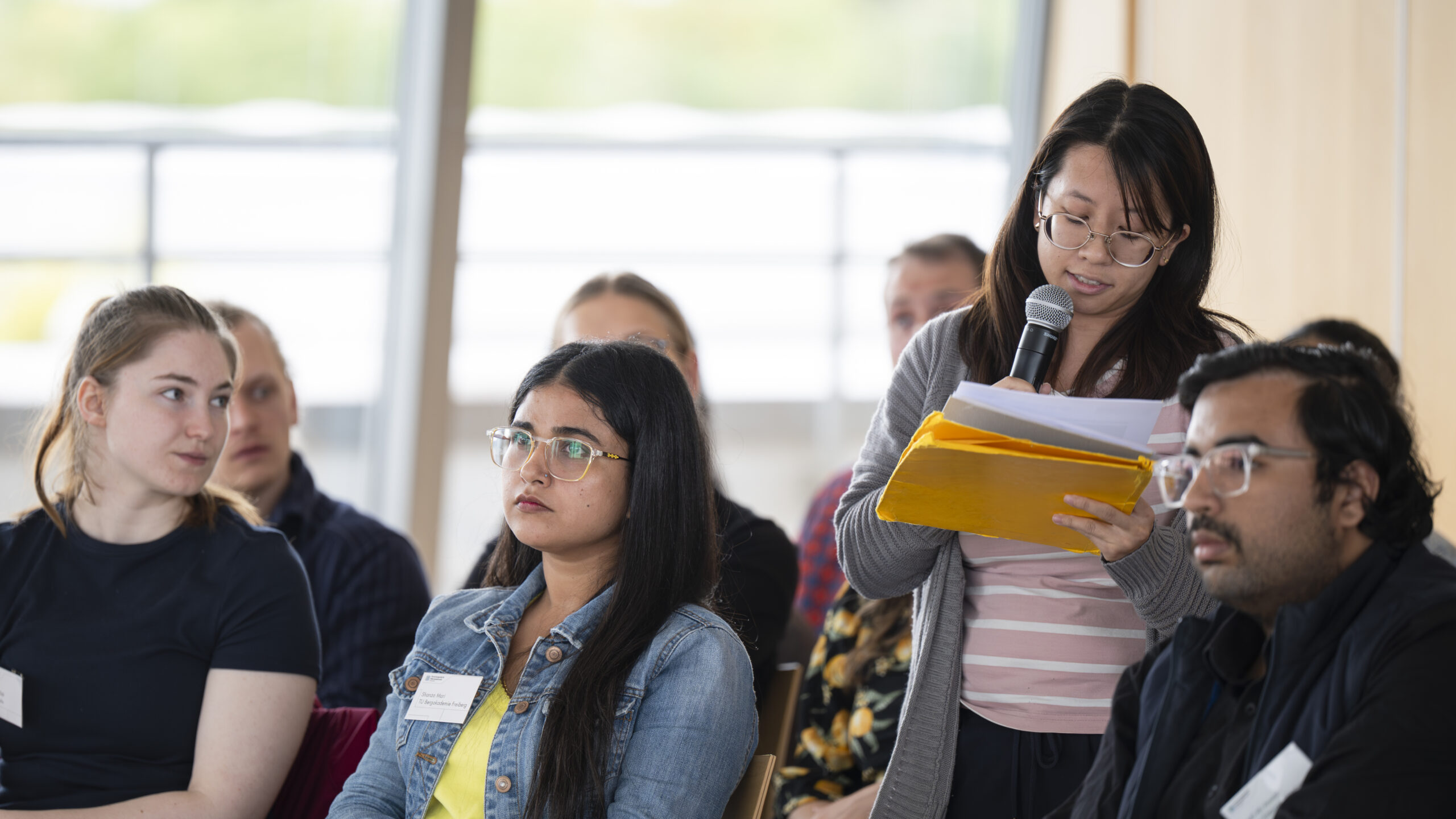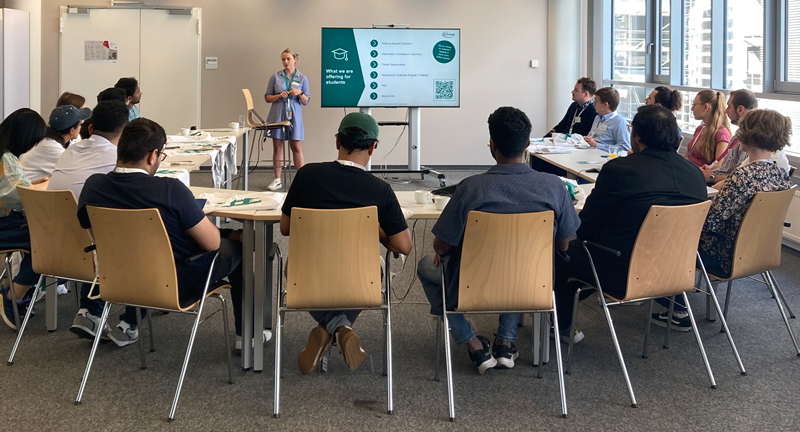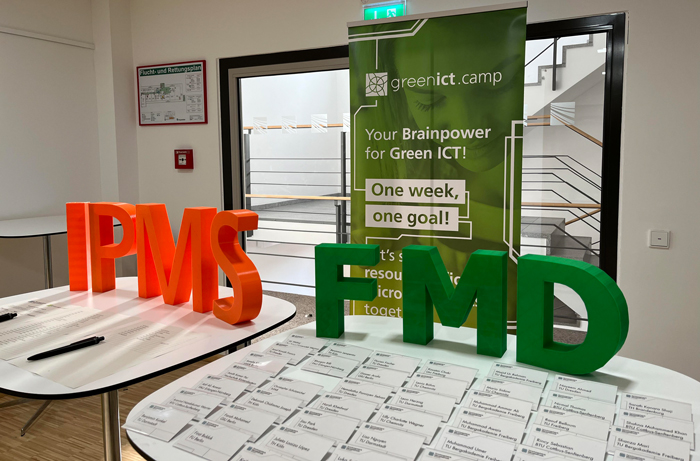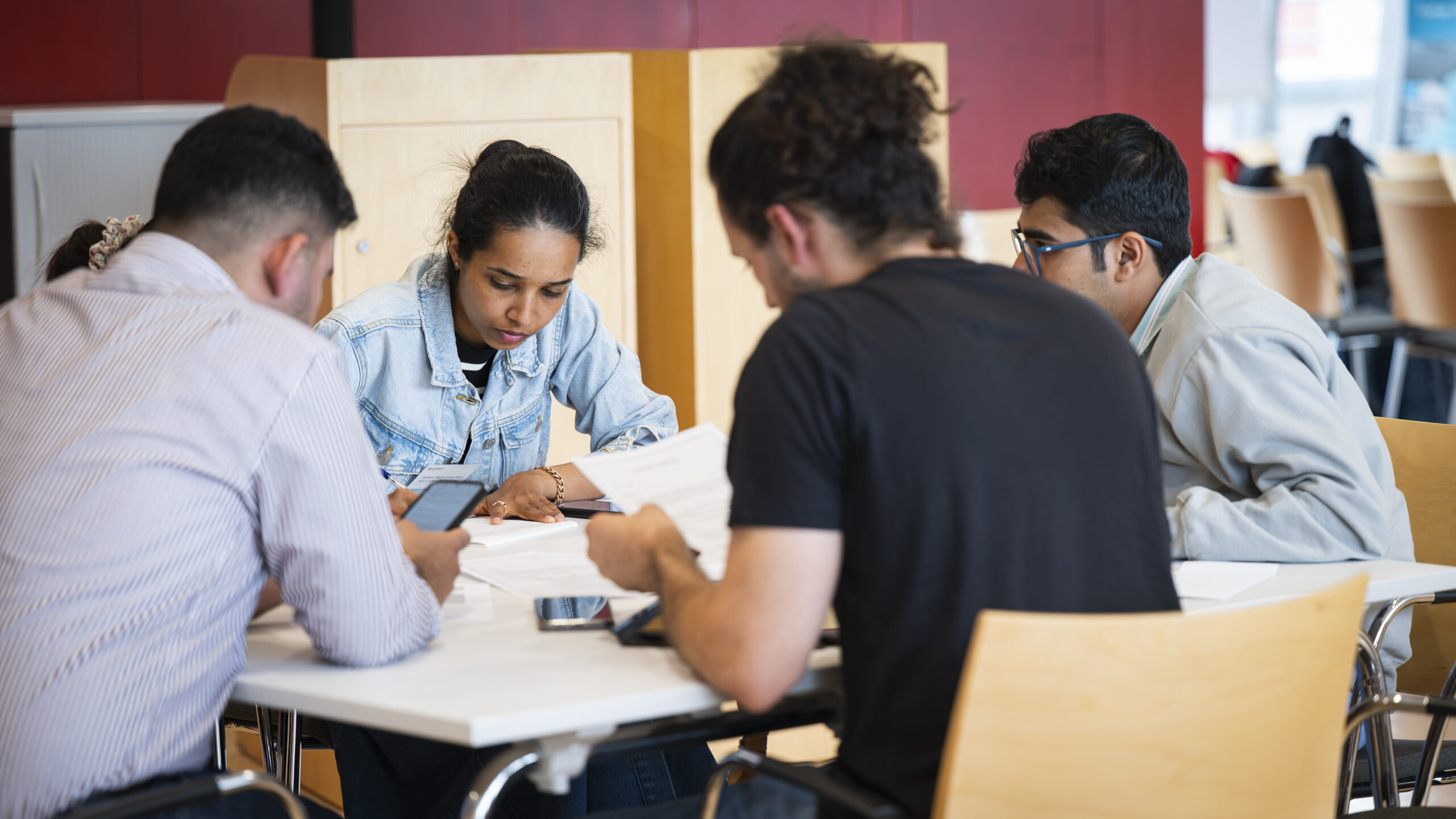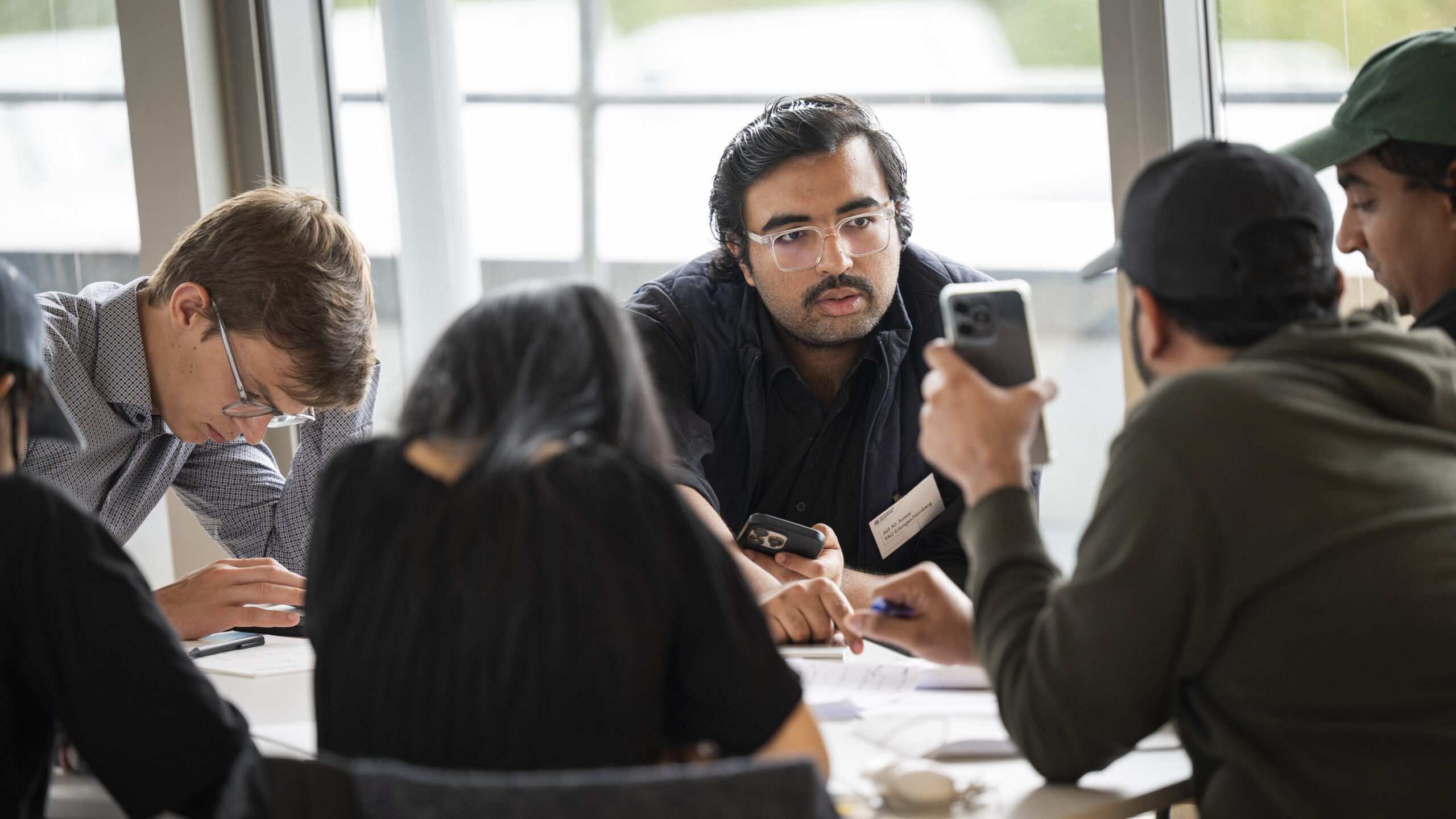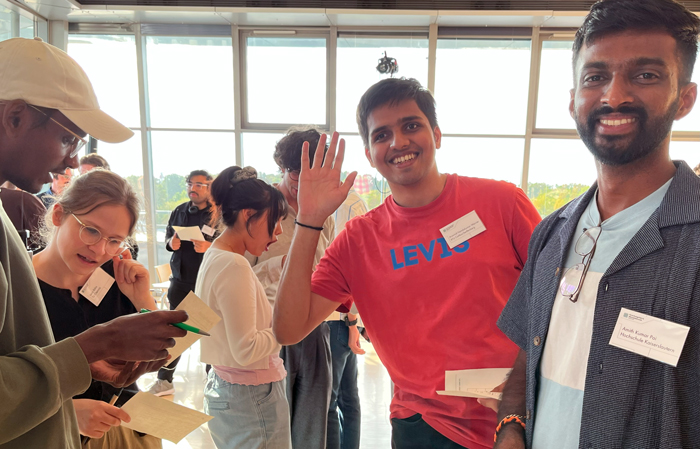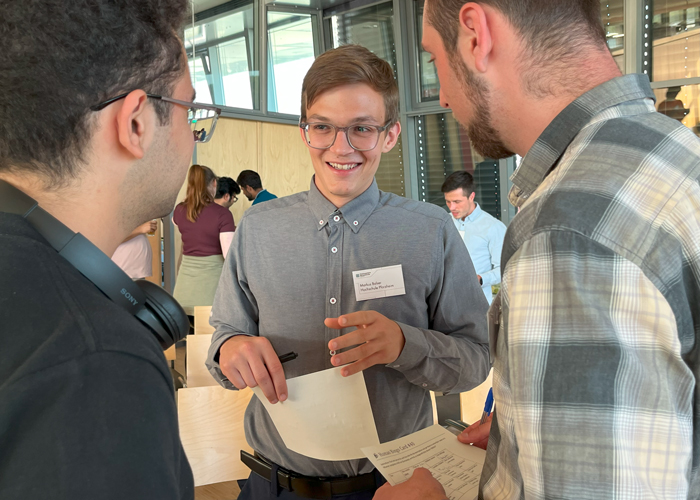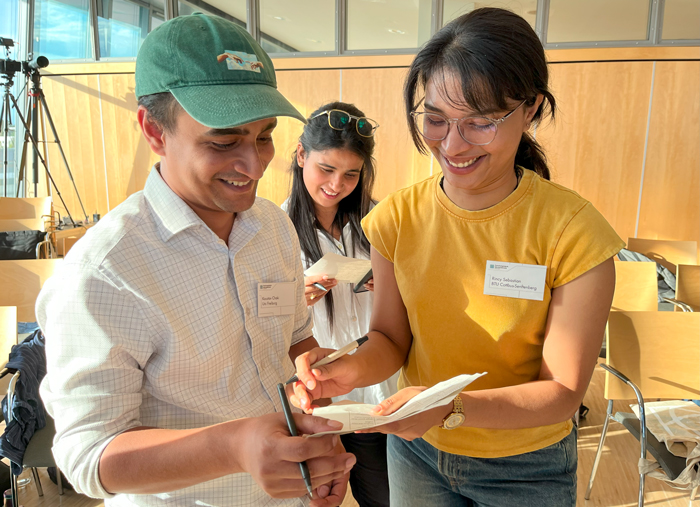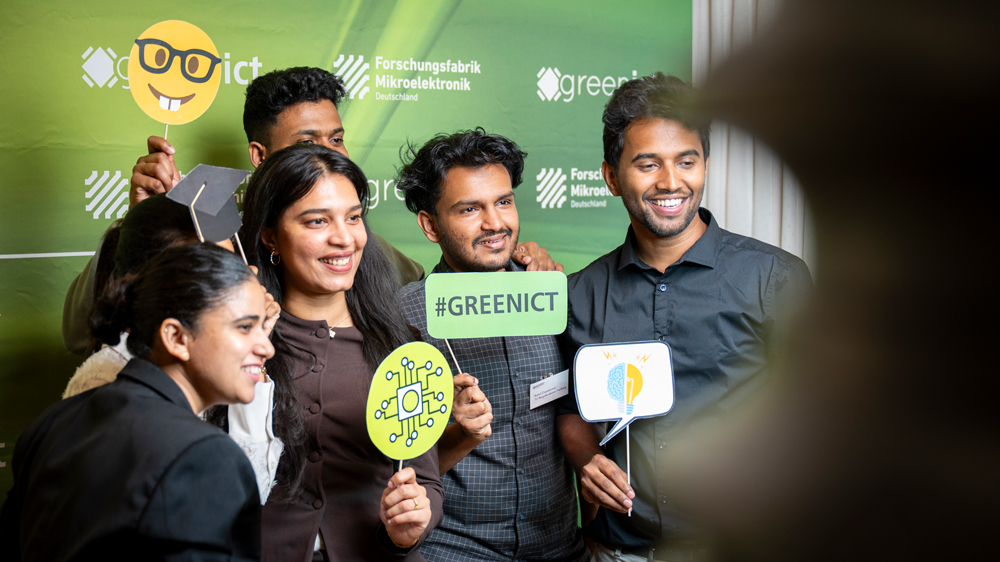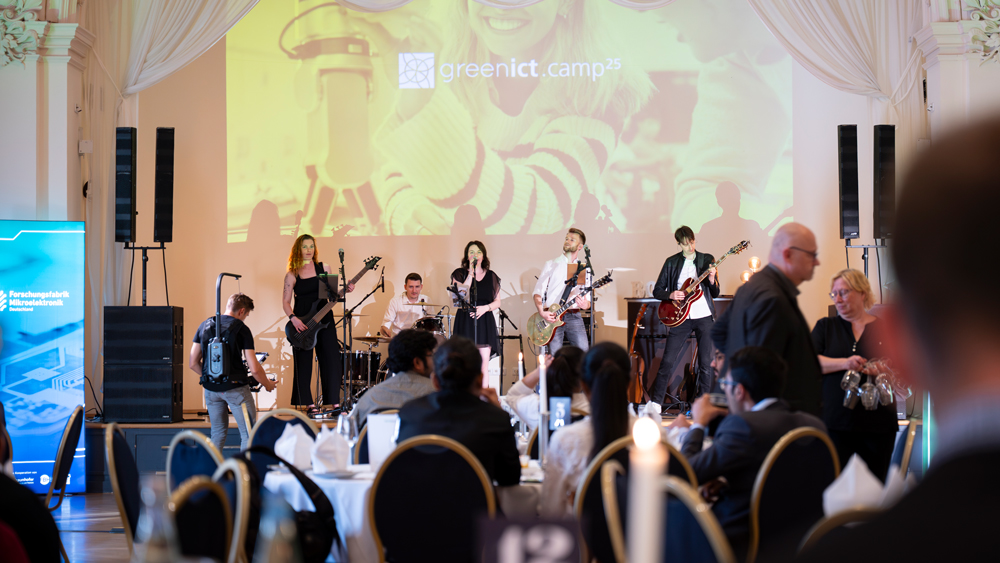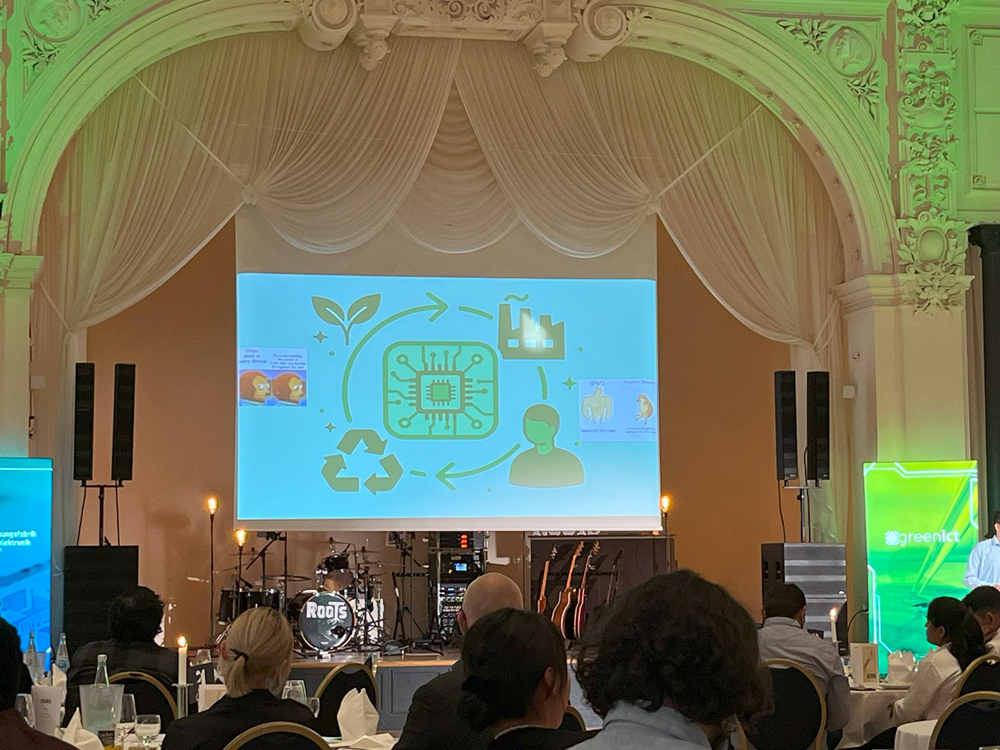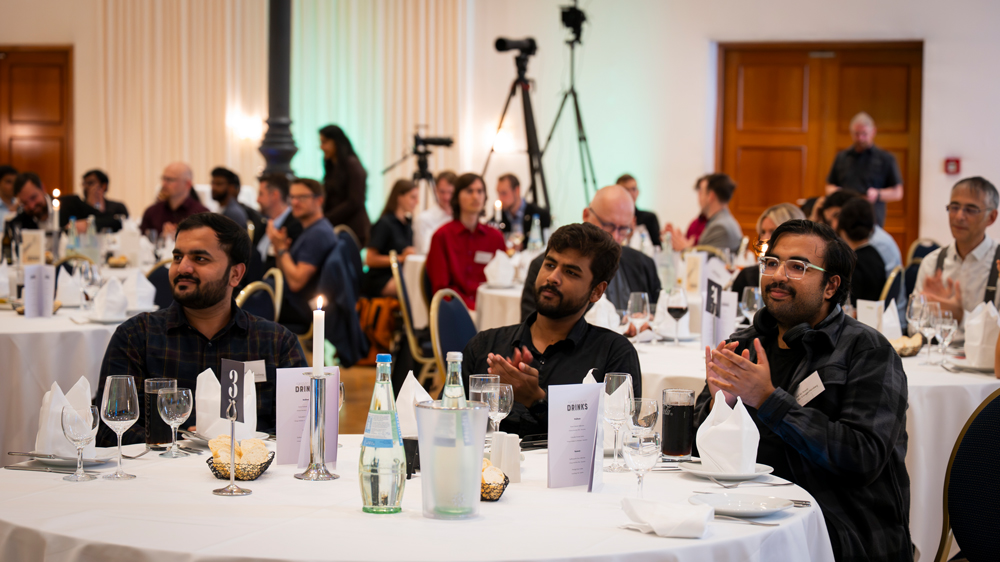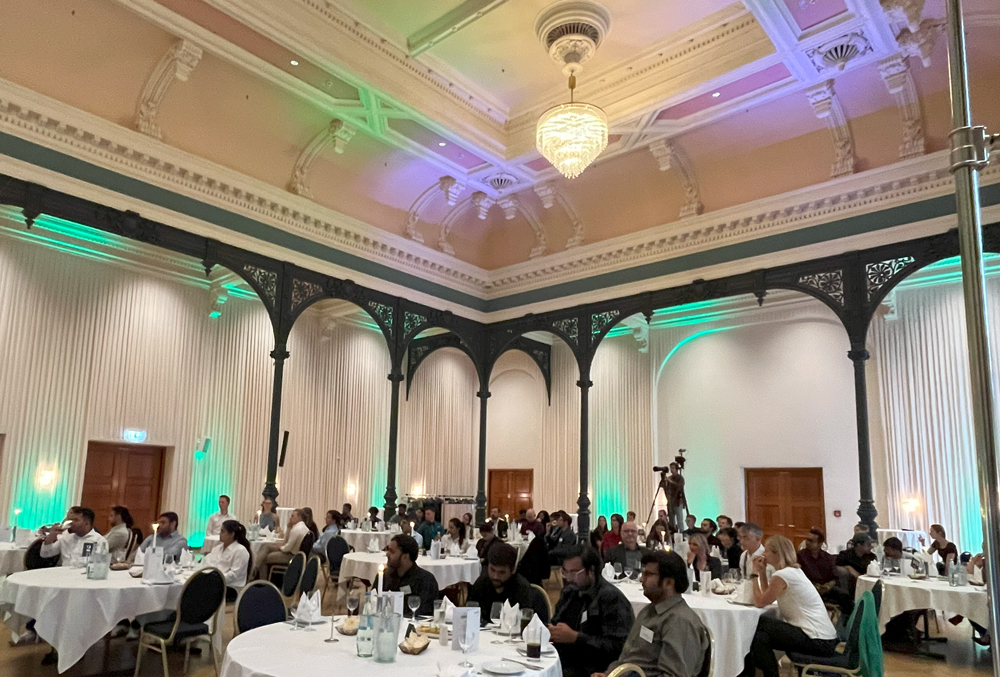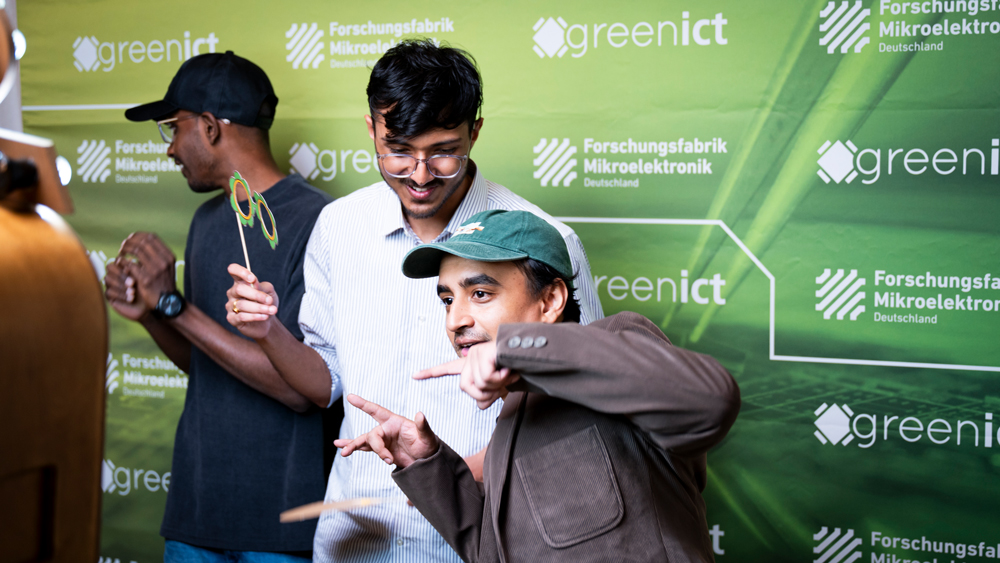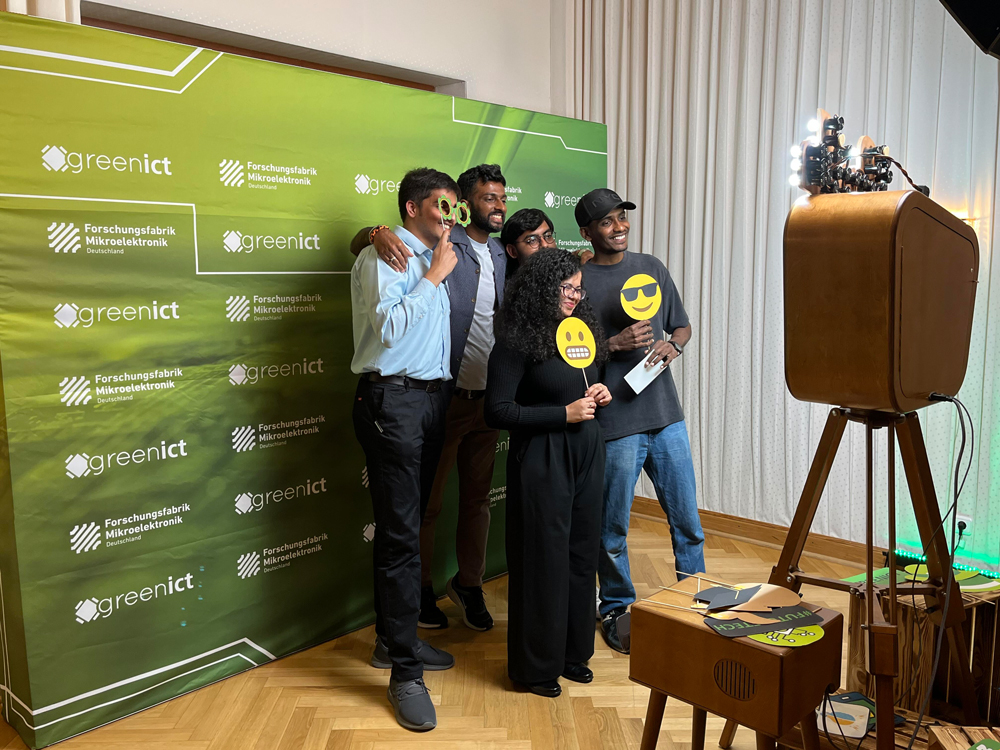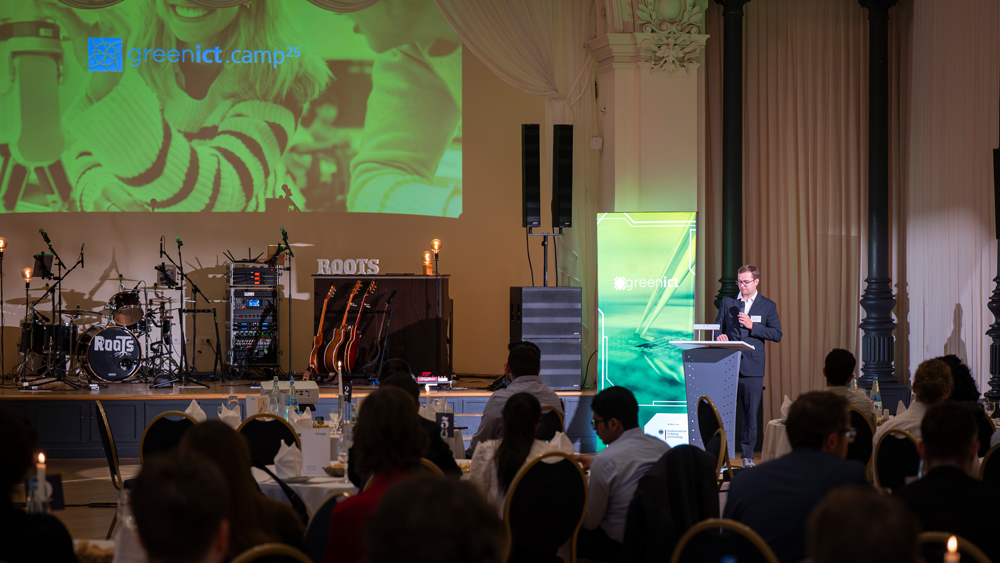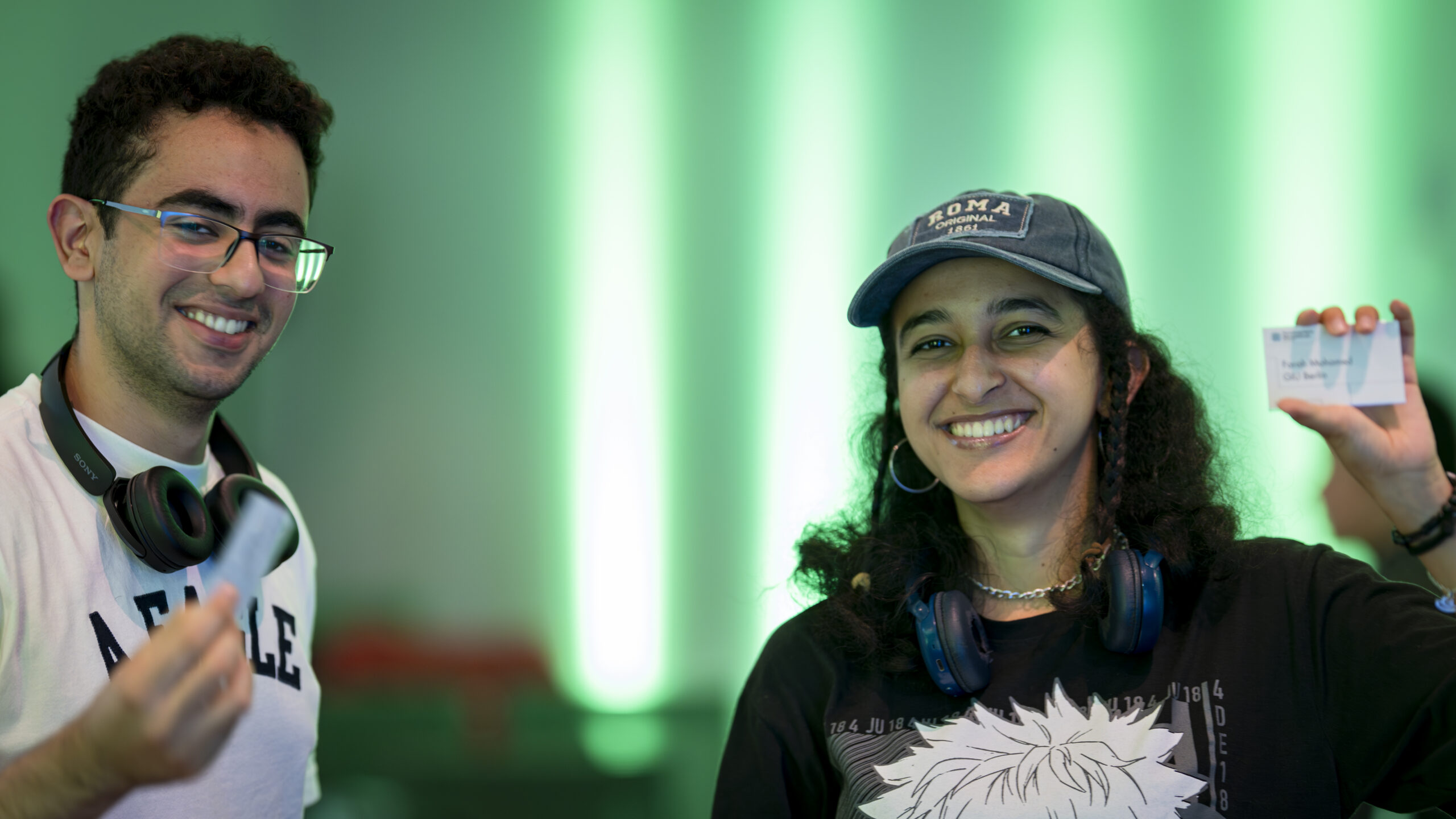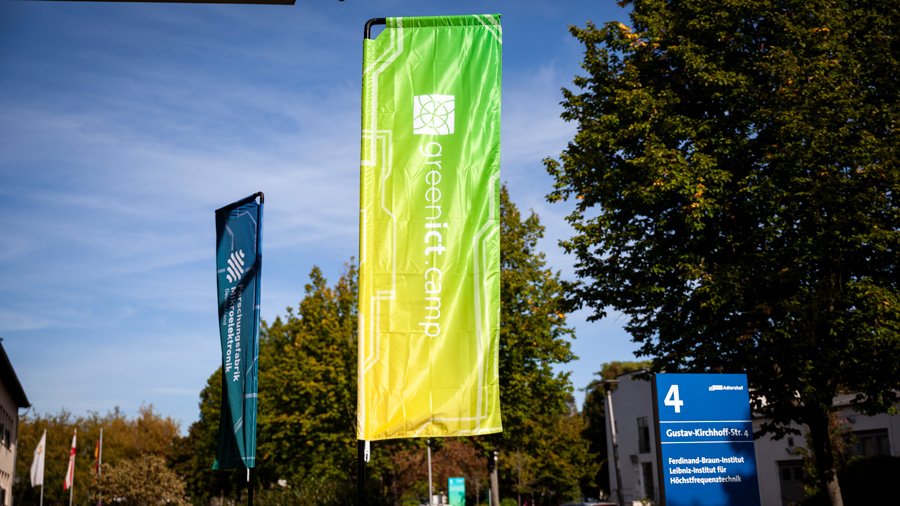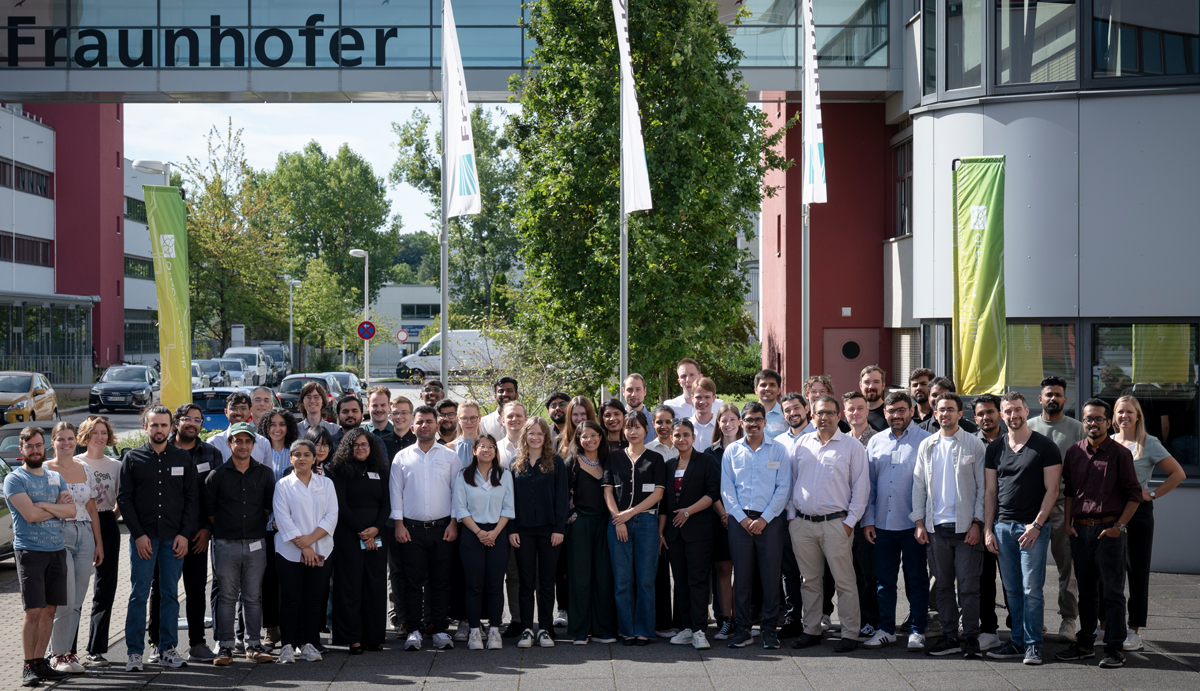
Our last Green ICT Camp for students took place from September 1 to 5, 2025. It was an intensive week full of discussions, workshops, and lectures, with nearly 50 students from universities across Germany who are committed to more environmentally sustainable microelectronics.
Science meets practice
The camp focused on knowledge transfer between research, industry, and young talent. Participants gained exclusive insights into MEMS manufacturing at Fraunhofer IPMS as well as the production and application of microelectronics. Demonstrators and virtual reality tours made microelectronics tangible and easy to understand. Workshops, lectures, and discussion panels provided practical knowledge on topics such as life cycle assessment (LCA), eco-design, PFAS reduction, and the sustainable use of resources in semiconductor production.
Commitment to sustainable technologies
The focus was on how microelectronics can be made more environmentally friendly. In a public panel discussion, representatives from VDI/VDE-IT, X-FAB, Fraunhofer IPMS and Fraunhofer IZM on political framework conditions, innovations, and responsibility in microelectronics.
During company visits to GlobalFoundries, Infineon Technologies, and X-FAB , best practices from the industry were presented—from energy-efficient manufacturing and resource-saving construction projects to alternative materials such as gallium nitride.
Projects with real impact
Working in interdisciplinary groups, participants developed their own solutions to real sustainability issues facing the industry. Their final presentations at the camp gala demonstrated a sound technical understanding and a remarkable level of commitment—topics included energy and chemical consumption, PFAS alternatives, greenhouse gas reduction, and LCA communication.
Closing gala
The participants presented their group projects at a gala event. Each presentation reflected technical understanding and a strong commitment to ecological solutions. The event was rounded off with a ceremony and live music from The Roots. A photo booth captured the atmosphere and the new contacts made during the week.
Lasting impact
The camp not only provided knowledge, but also sparked enthusiasm for technical innovations in harmony with ecological responsibility. The practical formats in particular—from workshops and company visits to political discussions—helped to raise awareness of sustainable ICT.
The feedback from participants was consistently positive—in particular, the combination of technical depth, personal exchange, and direct contact with industry and research was highlighted.
With its camp format, Green ICT @ FMD demonstrates how sustainable microelectronics can already be actively shaped today—through cooperation, promoting young talent, and the willingness to break new ground.

